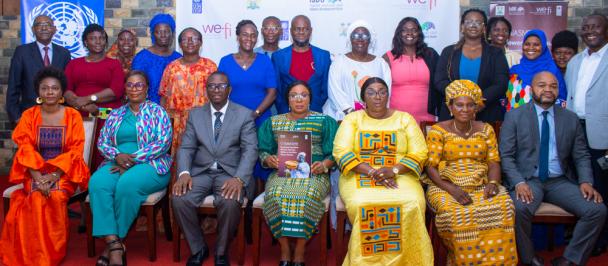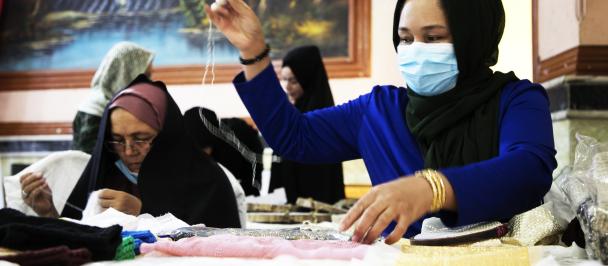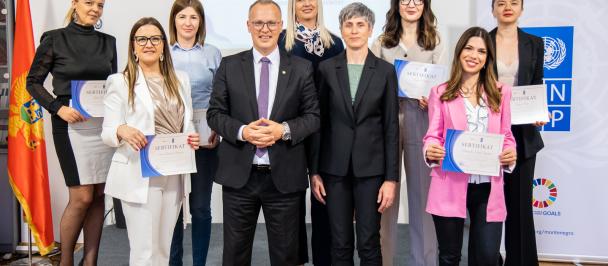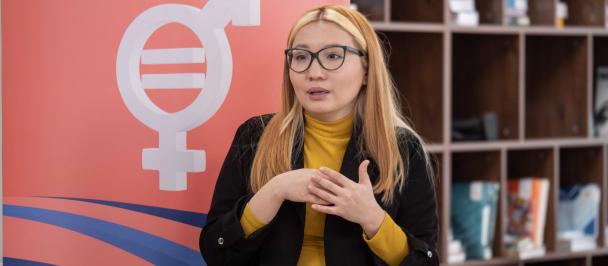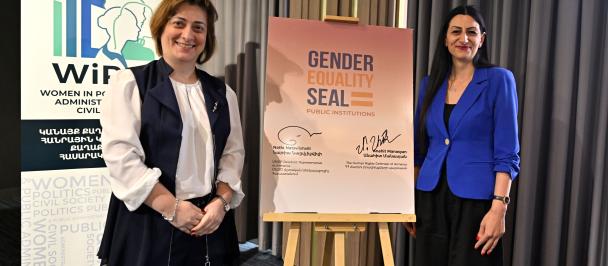Gender Equality Seal career talks to inspire female students
October 3, 2022
Gender equality is essential in the workplace and one way to balance the scales is to persuade more women to pursue a career in a UN agency.
UNDP Malawi Resident Representative Shigeki Komatsubara and a team of staff members conducted career orientation sessions for over 300 graduating female students at Malawi University of Business and Sciences (MUBAS) and Malawi University of Science and Technology (MUST) in the Southern region of Malawi, and the University of Livingstonia (UNLIA) in the North, as part of UNDP Gender Equality Seal Implementation.
The UNDP Gender Equality Seal is a quality assurance initiative that track, measure and certify the competence and achievements in advancing women's rights and corporate gender equality goals. It's a tool for empowering managers and accelerating changes needed to support countries' gender equality goals.
The 17 Sustainable Development Goals (SDG) adopted by the United Nations (UN) in 2015 are a universal call to end poverty, protect the planet, and ensure that by 2030 all people enjoy peace and prosperity. SDG 5 on ‘Gender Equality’ focuses on universally eliminating discrimination and violence against women and girls, while ensuring women’s full and effective participation and equal opportunities for leadership at all levels of decision-making in political, economic, and public life. Per the Malawi Gender Equality Act, public offices are mandated to ensure fair representation of men and women in the workplace whereby each gender should not be below 40% or beyond 60%.
Gender equality is essential in the workplace and one way to balance the scales is to persuade more women to pursue a career in a UN agency. According to the UNDP Malawi Country Office Human Resources (HR) Department, there are usually more applications from males than females and would like to encourage qualified women to pursue UN/UNDP jobs equally. It is in this vein that the event focused on orienting the girls on the job application requirements and application processes. Some staff members also shared their experiences applying for UN jobs to motivate the students. The information materials were shared with all students, male, and female, as the information was vital for all people interested in pursuing UN/UNDP jobs.
Speaking to the students, Mr. Komatsubara emphasized the importance of equal gender representation in the workplace stating, “Women are the drivers of innovation, and we have so much talent in Malawi. Many of you came from so far to reach this place, but you shouldn't stop here. If you are interested in challenging yourself and if you are thinking about how you should approach your career professionally and strategically, we are here to walk with you.”
Gender and Development Specialist Juliet Sibale gave some insight into the legal frameworks and future of work to the need for women to catch up with the fast-changing trends in digitization, and innovation among other things. “Historically, gender equality has been slowly catching up. Things were a bit stable then. However, since covid 19 pandemic hit, work styles have transformed and continue to do so. Women need to adapt quickly to maintain and increase their space in the work place as the world is going digital and needs more innovative minds,” she explained.
HR Associate Pilirani Chikwese delved into the requirements for the different job levels one can apply for, and competency-based interview preparation. She stated, “To answer a competency-based question, use the STAR format which is the Situation, Task, Action, Result. Recall a specific experience related to the question, talk about the steps you took, and what the results were.”
Also, in attendance at the career talks to share their inspiring career testimonies were ICT Associate Tadala Sambakunsi, Procurement Associate Veronica Karim, and Communications Analysts Gloria Nyang’iye and Limbani Ngwata.
The university authorities and the students applauded UNDP for organizing the UN career orientation sessions for girls and advised that they be more frequent in the future and give more time so that more students are targeted beyond the graduating classes.

 Locations
Locations

